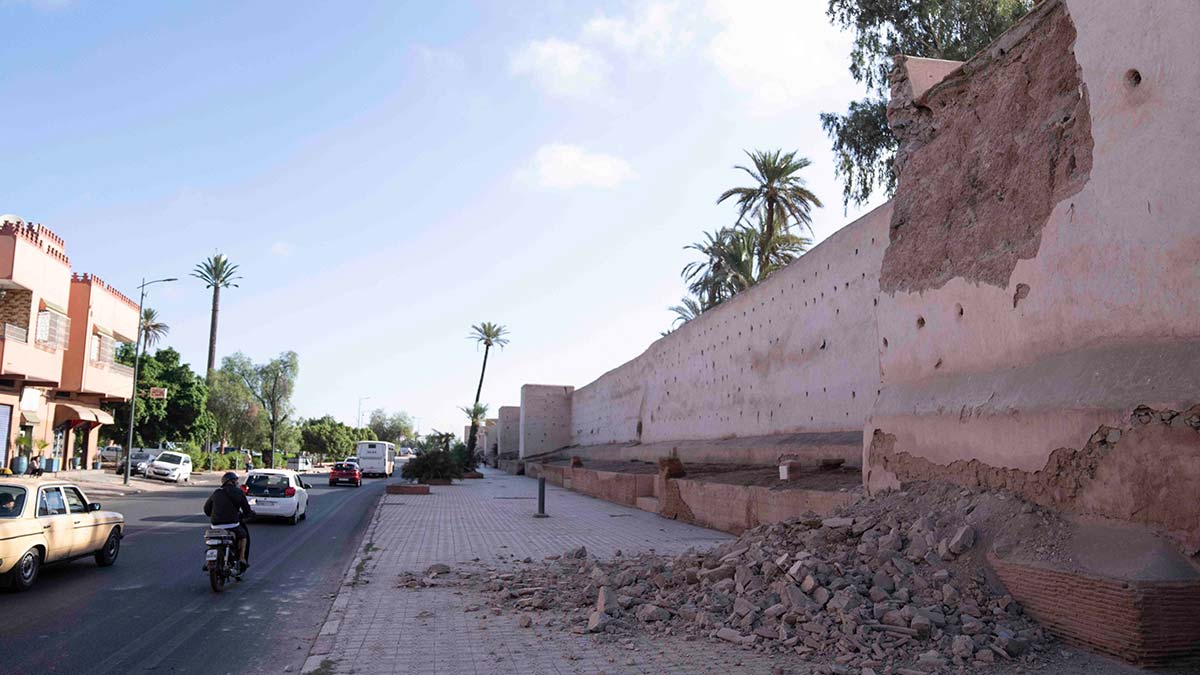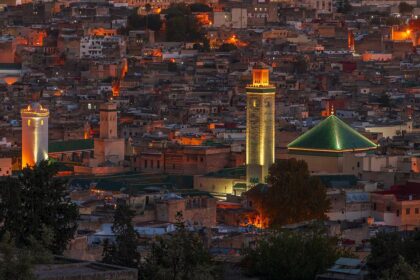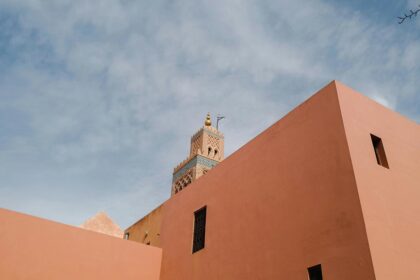On the fateful evening of Friday, September 8, Morocco was struck by a powerful 6.8 magnitude earthquake, resulting in a tragic loss of over 2,000 lives and leaving thousands injured. The earthquake’s epicenter was situated high in the Atlas Mountains, approximately 44 miles southwest of Marrakesh. This region encompasses many remote villages that pose significant challenges for rescue operations.
Compounding the devastation, the relatively shallow depth of the epicenter, coupled with the antiquity of structures within Marrakesh’s medina, led to widespread damage and collapses in this renowned tourist destination. Presently, rescue endeavors persist in the affected areas. For those planning travel to Marrakesh in the near future, here’s essential information you should be aware of.
The earthquake’s impact has been most pronounced in central Morocco, particularly in Marrakesh, the nearest major tourist destination. The medina, an esteemed UNESCO World Heritage site and the oldest district of the city, has witnessed significant damage and structural collapses. This can be attributed to the historical nature of the buildings, which were not designed with seismic events in consideration.
Tragically, the mountain villages, often secluded and challenging to reach, have borne the brunt of the casualties. As of Sunday, September 10, local reports indicate that the confirmed death toll has surpassed 2,000. Rescue operations are in progress, but it is anticipated that the number of fatalities will continue to rise.
While tremors were felt as far as Portugal and Spain, the majority of the damage is localized near the epicenter. Cities on the west coast such as Agadir and Essaouira have experienced some structural facade damage but remain relatively unscathed. Moving northward, cities including Casablanca, the capital Rabat, Fez, and Tangier have been spared from the earthquake’s impact.
The epicenter of the formidable 6.8 magnitude earthquake was situated in the lofty expanse of the Atlas Mountains, roughly three miles to the east of Adassil, nestled at an approximate depth of 11 miles. This seismic event occurred precisely at 11:11pm on Friday, September 8.
Shortly thereafter, a secondary, albeit smaller earthquake transpired at 11:30pm on the same evening of September 8. Its epicenter lay in close proximity, approximately 12 miles to the south of Imindounit, at a depth of 6 miles.
How often do earthquakes occur in Morocco?
Indeed, Morocco is not prone to frequent large-scale earthquakes. The latest notable seismic event, registering at a magnitude of 4.1, occurred approximately eight months ago, just outside Agadir. Prior to this, there was a significant seismic occurrence eight years prior, when a 4.1 magnitude earthquake was recorded in the vicinity of Agadir in January 2015. This underscores the infrequent nature of substantial earthquakes in the region.
It is safe to travel to Morocco right now?
Rescue operations are actively underway in the Atlas Mountains, with many roads currently impassable. If your travel plans involve Marrakesh, it is highly advisable to liaise with your tour operator for the most up-to-date information. Given the likelihood of aftershocks persisting in the area for the next few days, a comprehensive assessment of structural integrity, particularly in the medina, is imperative.
In a broader sense, the region will remain focused on recovery efforts in the ensuing weeks. Therefore, planning travel to this area during this period may not be conducive to the ongoing relief endeavors. Looking beyond this timeframe, exercising patience and discretion is prudent. Marrakesh, a city heavily reliant on tourism, eagerly anticipates the return of visitors once conditions are deemed safe and reasonable.
Importantly, the remainder of the country has been minimally impacted by the earthquake, thus there should be no cause to reconsider or cancel your travel plans elsewhere in Morocco.
Is it safe to travel to Marrakech after the earthquake?
Yes, It appears that a substantial volume of UK flights have been operating both to and from Morocco following the earthquake. This includes services provided by reputable carriers such as British Airways, easyJet, and Tui. Departures have been noted from various UK airports, including London Gatwick, Luton, London Stansted, as well as Birmingham and Manchester. These operations suggest a measured resumption of air travel in the region.
Is Marrakesh airport still open and are flights being cancelled?
Marrakesh airport has maintained its operational status, with flights to and from the city proceeding without interruption. However, it is worth noting that visitors might encounter potential disruptions in accommodation and pre-booked tours. It is advisable for travelers to verify the status of their reservations and make necessary arrangements in light of the earthquake’s impact on the region.
Can I get a refund if I choose not to go because of the earthquake?
If your travel plans are scheduled for areas outside the affected regions, there is no compelling reason to reconsider your trip. It’s important to note that if you choose to cancel, it may be categorized as a personal decision rather than an external event, which could result in limited options for reimbursement.
For those intending to visit Marrakesh or the Atlas Mountains within the next few weeks, it is prudent to consult with your travel company. Flights to Marrakesh continue to operate without disruption, but potential challenges may arise in terms of accommodation and pre-booked tours. If you’ve arranged a package holiday, your tour operator may offer the option to reschedule your trip; it’s recommended to discuss this directly with them.
If you’ve separately booked your flights and accommodation, it’s crucial to communicate with the respective travel providers. While airlines typically expect passengers to adhere to their original travel plans, in the event of earthquake-related damage to your accommodation, a refund may be provided, necessitating the arrangement of alternative lodging. If you opt not to travel under these circumstances, you may be eligible for partial reimbursement through your travel insurance, but specific terms and conditions should be reviewed.













